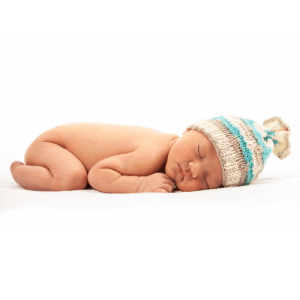
As a parent, you may often wonder if your child is getting enough sleep. Sometimes, it’s a subtle feeling—a parental intuition—that suggests something might be off. If you find yourself pondering over your child’s sleep habits, it’s worth investigating. Even if they seem to be in bed for the recommended number of hours, there are several aspects that determine if your little one is getting enough sleep.

Yes, duration matters when it comes to sleep, but that’s not the only factor at play. Let’s dive deeper into why your child might not be getting the quality sleep they need, even if they spend enough time in bed.
Believe it or not, we all have what is called a chronotype. A chronotype is essentially our body’s natural preference for wakefulness and sleepiness times during a 24-hour period. If your child is sleeping outside their built-in schedule, the quality of their rest may suffer—even if the quantity seems sufficient [1].
Shift workers stand as a compelling example. Numerous studies highlight that these individuals, despite getting enough hours of sleep during the day, are more susceptible to chronic diseases compared to those who sleep at night [1]. One such study, published in the American Journal of Epidemiology, details how misalignment between a person’s sleep schedule and their chronotype can lead to adverse health outcomes. This can extend to our children, who—with the pervasive blue light from screens and inconsistent schedules—may fall out of sync with the natural rhythm that dictates the optimal time for sleep and wakefulness [1].
That late-night energy spike your child experiences could possibly be linked to poor breathing habits, not just their personality as a “night owl.” Mouth breathing, snoring, and sleep apnea can massively disrupt the quality and quantity of sleep. A scholarly article from The Journal of Laryngology & Otology underscores the connection between these factors and sleep disturbances in children [2]. These breathing issues can fragment sleep, leading to a decrease in the deep, restorative stages of the sleep cycle, which are so crucial for your child’s development and daily functioning [2].
Inflammation is the body’s response to all sorts of issues, and when it comes to the digestive system, this response can directly interfere with sleep. Research, like that published in the World Journal of Gastroenterology, suggests a strong link between gut health and sleep. The study explains that the gut microbiome and the circadian rhythms influencing sleep are interlinked: inflammation can throw off the balance of hormones that help regulate sleep, such as melatonin and serotonin, leading to disrupted sleep patterns [3].
Lastly, mental health plays a pivotal role in sleep quality. Chronic stress, anxiety, and depression can all lead to a reduction in both sleep quality and quantity. An article in Sleep Medicine Reviews reviews evidence showing that stress and mental health disorders can significantly impact sleep, leading to a potential reduction in the restorative stages of sleep and shorter sleep duration overall [4].
The link between all these points is clear: for our children to truly benefit from their sleep, we need to consider more than just how long they’re in bed. Quality, timing, physical health, and mental well-being are all pieces of the puzzle.
As you evaluate whether your child is getting enough sleep, remember to look beyond the clock. Adequate sleep is a foundational element of your child’s health, and it’s intricately connected to many aspects of their daily life. By fostering a wholesome sleep environment that takes into account timing, physical health, and mental well-being, you can help ensure that your child’s sleep is truly restorative.
Have listen to this podcast on Spotify or watch and listen on YouTube!
References:

Sleep

Sleep
